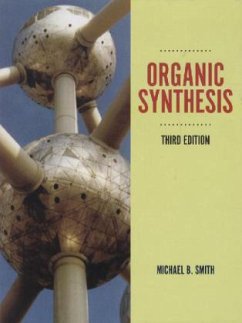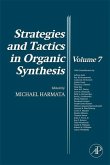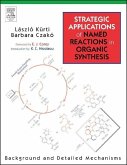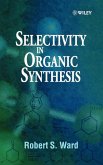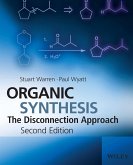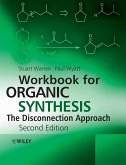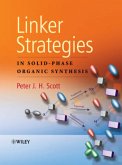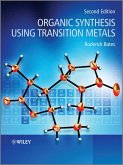A reactions oriented course is a staple of most graduate organic programs, and synthesis is taught either as a part of that course or as a special topic. Ideally, the incoming student is an organic major, who has a good working knowledge of basic reactions, stereochemistry and conformational principles. In fact, however, many (often most) of the students in a first year graduate level organic course have deficiencies in their undergraduate work, are not organic majors and are not synthetically inclined.
To save students much time catching up this text provides a reliable and readily available source for background material that will enable all graduate students to reach the same high level of proficiency in organic chemistry. Produced over many years with extensive feedback from students taking an organic chemistry course this book provides a reaction based approach. The first two chapters provide an introduction to functional groups; these are followed by chapters reviewing basic organic transformations (e.g. oxidation, reduction). The book then looks at carbon-carbon bond formation reactions and ways to 'disconnect' a bigger molecule into simpler building blocks.
Most chapters include an extensive list of questions to test the reader's understanding. There is also a new chapter outlining full retrosynthetic analyses of complex molecules which highlights common problems made by scientists.
The book is intended for graduate and postgraduate students, scientific researchers in chemistry
New publisher, new edition; extensively updated and corrected
Over 950 new references with more than 6100 references in total
Over 600 new reactions and figures replaced or updated
Over 300 new homework problems from the current literature to provide nearly 800 problems to test reader understanding of the key principles
Free molecular modeling software to explore 60 new synthesis-oriented molecular modeling problems; designed to aid visualisation and understanding of organic synthesis
To save students much time catching up this text provides a reliable and readily available source for background material that will enable all graduate students to reach the same high level of proficiency in organic chemistry. Produced over many years with extensive feedback from students taking an organic chemistry course this book provides a reaction based approach. The first two chapters provide an introduction to functional groups; these are followed by chapters reviewing basic organic transformations (e.g. oxidation, reduction). The book then looks at carbon-carbon bond formation reactions and ways to 'disconnect' a bigger molecule into simpler building blocks.
Most chapters include an extensive list of questions to test the reader's understanding. There is also a new chapter outlining full retrosynthetic analyses of complex molecules which highlights common problems made by scientists.
The book is intended for graduate and postgraduate students, scientific researchers in chemistry
New publisher, new edition; extensively updated and corrected
Over 950 new references with more than 6100 references in total
Over 600 new reactions and figures replaced or updated
Over 300 new homework problems from the current literature to provide nearly 800 problems to test reader understanding of the key principles
Free molecular modeling software to explore 60 new synthesis-oriented molecular modeling problems; designed to aid visualisation and understanding of organic synthesis
"Smith (Univ. of Connecticut) has geared this book to graduate-level course in organic synthesis, and he reinforces material in each chapter with relevant homework problems. The third edition (2 nd ed., 2001; 1 st ed., 1994) includes more than 600 new reactions and 900 new references, compared to the second edition. These reactions and references are all new since 2002, clearly illustrating the field's continuing growth. Another key addition is the integration of synthesis-related molecular modeling problems using SpartanModel into the homework problems. The extensive index allows the reader to easily find specific information. Coverage of the topic is thorough, with very little wasted space on any of the 1,506 pages.. Summing Up: Recommended. Upper-division undergraduates through professionals/practitioners."-- CHOICE
"This is without doubt a must-have organic chemistry textbook. It is clear, concise and very readable. Trying to write a textbook is extremely difficult and demanding, but trying to write one that is the superlative book in a student's, or practicing chemist's, library is an almost impossible task. Michael Smith has achieved that. From the very beginning you are immersed in the fundamentals of retrosynthesis, stereochemistry, oxidations, reductions and protecting group strategies. This is made complete by the thorough blend of theory and referenced examples from the literature. With a comprehensive toolkit of named organic reaction mechanisms to piece it all together, this is by far the all-in- one book for organic chemists. Organic Synthesis outshines the most popular organic chemistry books in my own collection and now takes its seat as my companion both in the lab and on my desk. I can wholeheartedly recommend this book to chemists at all stages of their career." --Chemistry World, June 2012, page 61
"This is without doubt a must-have organic chemistry textbook. It is clear, concise and very readable. Trying to write a textbook is extremely difficult and demanding, but trying to write one that is the superlative book in a student's, or practicing chemist's, library is an almost impossible task. Michael Smith has achieved that. From the very beginning you are immersed in the fundamentals of retrosynthesis, stereochemistry, oxidations, reductions and protecting group strategies. This is made complete by the thorough blend of theory and referenced examples from the literature. With a comprehensive toolkit of named organic reaction mechanisms to piece it all together, this is by far the all-in- one book for organic chemists. Organic Synthesis outshines the most popular organic chemistry books in my own collection and now takes its seat as my companion both in the lab and on my desk. I can wholeheartedly recommend this book to chemists at all stages of their career." --Chemistry World, June 2012, page 61

